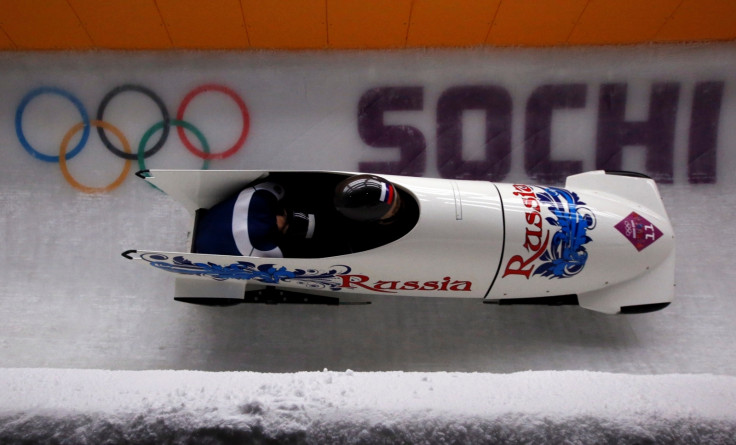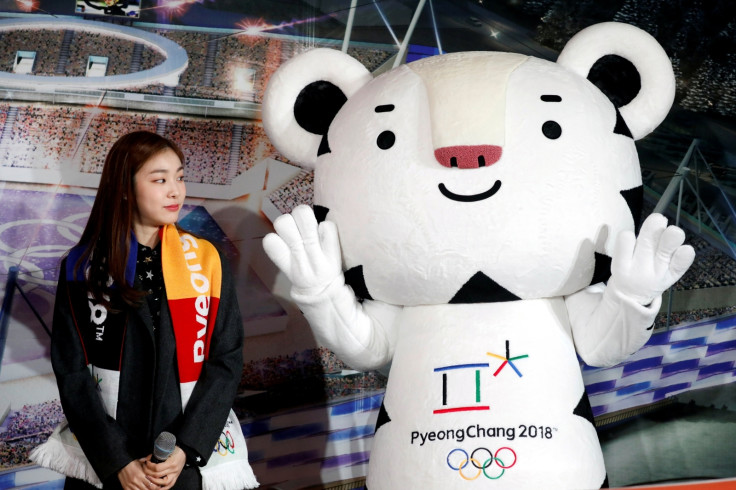'It's a humiliation:' Russian officials condemn IOC ban of Russia's Winter Olympic team
The games take place in February in Pyeongchang, South Korea, in 2018.
Russian officials have lined up to condemn the International Olympic Committee's ban of its athletes at next year's winter Olympics.
After a 17-month investigation that uncovered a widespread "manipulation of the anti-doping rules" in the lead-up to the last games in Sochi, the IOC ruled that Russia cannot compete in the games in Pyeongchang which start in February 2018.
But reaction has been swift from Russian officials opposing the move to exclude one of the Games' sporting giants.
First vice-speaker of the Duma, Russia's parliament, Ivan Melnikov, said: "The policy of total persecution of Russian athletes is aimed at humiliating Russia and all our people."
Meanwhile, Duma vice-speaker, Igor Lebedev, called for a boycott of the Olympic movement, describing the IOC decision as a "a humiliation for such a great sporting country like Russia.
"This is another blow to Russian sports...we need to take some steps," which could include "a joint decision of all sports federations of our country on the complete refusal to participate in the Olympic Games.
"Someone may not like the word 'boycott'. But we need to deal a blow to the International Olympic Committee because without Russia, it will not be the Olympics, because Russia is one of the main contenders for all medals in any sport," he said, according to the Russian news agency Interfax.
The ban is likely to add to already tense relations between Moscow and the west and the claims of anti-Russian sentiment were liberally bandied about by Russian officials.

The claims of cheating first came to light after the whistleblower Grigory Rodchenkov, head of Russia's anti-doping laboratory in 2014, said his country had a programme of doping.
A probe known as the McClaren report found 1,000 athletes in 30 sports had benefitted from the programme between 2012 and 2015. The World Anti Doping Agency (Wada) said it found a database which backed those conclusions and some 25 athletes from Russia's Sochi team, or 10% of its participants, have been handed lifetime bans.
However the IOC said that athletes from Russia who can prove they are clean will be allowed to compete under a neutral flag for the games starting in February but this has sparked controversy as well.
First deputy head of the Federation Council committee on defence and security, Franz Klintsevich, said that athletes from "the great power should not go 'incognito' at the Olympics."

And vice speaker of the State Duma, Pyotr Tolstoy, said taking part without being able to under yout national flag was unacceptable, because Russia is a "great sporting power".
First Deputy Head of the Just Russia faction, Mikhail Yemelyanov, said competing under a neutral flag was an "offensive" proposal.
"The Olympic movement has been seriously harmed, the millions of spectators who wanted to see an honest competition have suffered a lot and the competition at the Olympic Games will be reduced," Yemelyanov told Interfax.
However president of the Russian Olympic Committee, Alexander Zhukov, welcomed the invitation for clean athletes to compete in South Korea but does not think they should compete under a neutral flag.
"If, as proposed, the temporary restrictions are lifted on the last day, then on the last day Russian athletes will compete under their flag with all the athletes from the rest of the world," he told reporters in Lausanne.





















